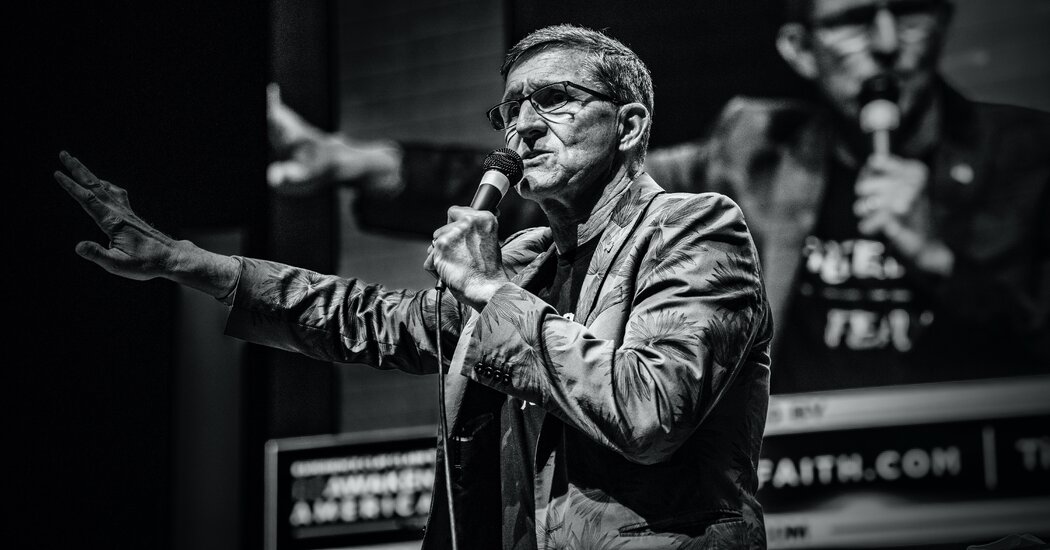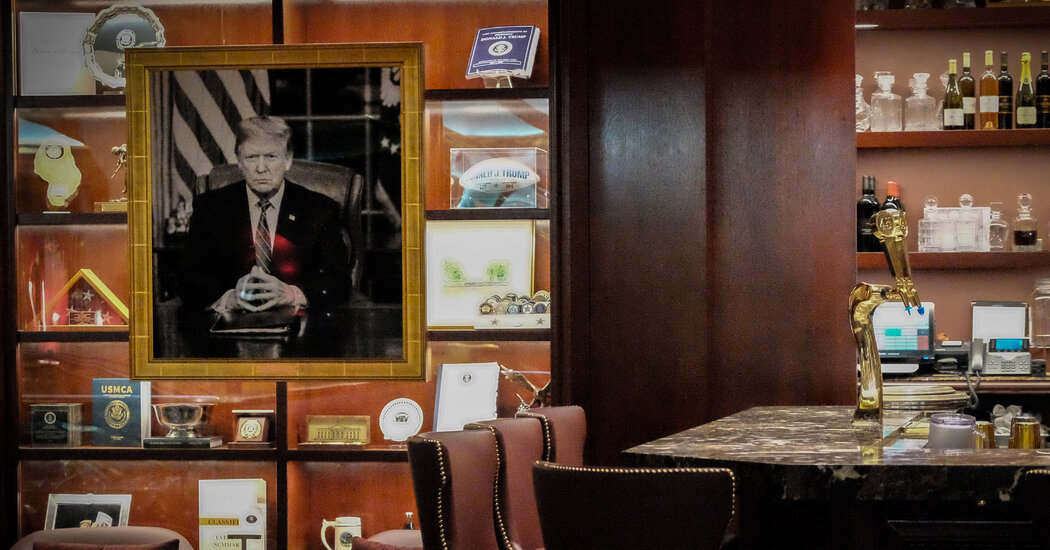
Raiklin proceeded into what Maddox described as “a wild, contortionist explanation of how they would reverse Biden’s election,” involving a succession of state audits. First Arizona, then Georgia, then Wisconsin and then other state legislatures would nullify the 2020 election results, he envisioned, until Biden’s victory margin would evaporate. Maddox told Raiklin he was skeptical. “But he said he was certain it was going to happen,” Maddox told me. “And he kept referring back to Mike Flynn as this linchpin and cog.”
“General Flynn is central to all this,” Raiklin had similarly claimed in New Hampshire when I spoke with him briefly after his talk. He refused to elaborate, so what that meant, exactly, was hard to say. In the feverish activity that now attends the 2020 election on the right, it can be difficult to distinguish conspiring from conspiracism — not least in Flynn’s own statements. In an interview in late January with the right-wing conspiracy website Infowars, Flynn accused George Soros, Bill Gates and others of creating the coronavirus so they could “steal an election” and “rule the world.” In another interview, he floated the rumor that “they” may be “putting the vaccine in salad dressing.”
But the Capitol riot demonstrated how quickly such conspiracism could be converted into action. The belief that the 2020 election was stolen holds sway in the Republican Party as much now as it did then: According to a YouGov poll in December, 71 percent of all Republicans believe that Biden was not elected legitimately. The stolen-election myth has fused with a host of other right-wing preoccupations — the coronavirus vaccines, critical race theory, border security — into a single crisis narrative, of which Flynn is both purveyor and protagonist: The deep state intends to break America as it tried to break Flynn and the man he had the audacity to serve, Donald Trump.
At the ReAwaken America event in Phoenix, I visited a booth hawking art by a man named Michael Marrone. In addition to the usual hagiographic portraits of Trump in Revolutionary War garb, Marrone had several of Flynn and other hallowed figures in the original effort to overturn the election, like Lin Wood and Sidney Powell. One featured the general seated next to Powell, both in colonial attire, signing the Declaration of Independence. In another, Flynn stood jut-jawed and eagle-eyed, wielding a musket. A third, featuring him beside Trump on a battlefield, bore Flynn’s autograph, next to the QAnon slogan WWG1WGA (“where we go one, we go all”).
In real life, the bonds among this band had started to fray. Wood and Flynn endorsed different Republican candidates for governor of Georgia, a state that has become central to the right-wing efforts to overturn the 2020 results and assert partisan control over future elections. Their estrangement deepened and eventually became public when Wood posted text messages and snippets of a phone conversation on the social media app Telegram. In one of them, Flynn expressed his belief that Trump had “quit” on America.
When I spoke with Wood in December, he told me that he had begun to reappraise the general. For so long Flynn’s partner in conspiracism, he had lately begun to wonder if Flynn himself might not be what he seemed. He told me about attending a Bikers for Trump rally in South Carolina last May, where Flynn led the crowd in the Pledge of Allegiance, only to fall silent momentarily during the line “and to the Republic for which it stands.” At the time, “I tried to defend him,” Wood said. “Now I don’t know. Who forgets the Pledge of Allegiance? Draw your own conclusions. It’s troublesome.”
It occurred to me that this, one way or another, was probably Flynn’s life for the foreseeable future: The prospect of a normal retirement long gone, he now belonged to a MAGA storybook world of heroes and villains and nothing in between. That world “is filled with strong personalities, which is a complication in any movement,” said J.D. Rucker, a conservative podcaster who is acquainted with and admires Flynn. “When you’re fighting for a cause, you’re also fighting for a spotlight within that cause. The left is less susceptible to this — whether because they have a more collectivist view or because they’re not as capitalistic, I don’t know.”




